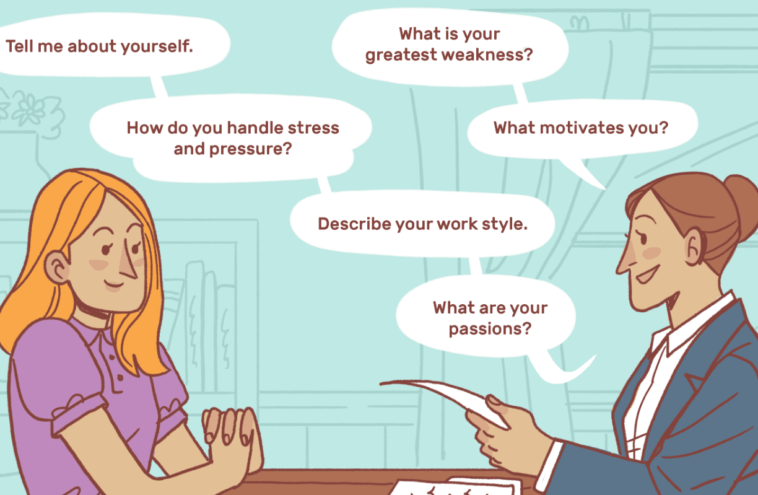How to build communication capabilities?
“There are three mistakes in human communication:
The first is the desire to speak when it is better to be silent.
The second is the unwillingness to speak when one cannot be silent,
The third is the tendency to speak without paying attention to the listeners ”(Confucius).
Some people might need a professional resume check service online where professionals working for the company providing this kind of services will do their best checking one`s resume, for more info please visit this site resumeperk.com.
Apart from an editor, there is a professional writer with the help of whom you may receive resume writing service from scratch. The writers and editors working for the writing review online company are professionals providing a first-class service. Such services come to have in handy for many and you won’t be an exception.
Why are communication skills so highly valued by employers?
Strong communication skills make employees more productive and more efficient. When you are good at communicating and establishing contact the first time, it saves you a lot of work time that would otherwise be spent on clarification, answering questions, distorting information, misinterpreting information received, correcting errors, etc.
Excellent communication skills distinguish a good employee from an ordinary one. At the very least, having these skills, or not having them, is critical to moving up the career ladder or not. Without mastering the skill of communication, your career can be a very hard hit. These skills can be critical when put on probation at a job.
Examples of interviewer’s questions and communication skills for interview

Communication skills also play a key role in getting a new job. At the end of the day, how you communicate will be immediately apparent both on your resume (business writing skills) and during the interview (oral communication skills). Be sure to include examples of your communication skills being used, both on your resume and in your first interview, as they serve as a selection indicator and skip to the second stage of the interview.
Examples of questions you may be asked in an interview to test your communication skills:
- tell us about yourself;
- tell us about your strengths/weaknesses;
- tell us about a difficult client/manager/colleague with whom you had to communicate?
- think of a time when you were asked to speak or prepare a presentation at the last minute. What were your actions
- give an example where you had to simplify complex information to explain it better;
- what methods/techniques/methods do you use to convince colleagues of your point of view? Give an example where the majority of employees agreed with your opinion, and what actions helped you achieve this?
While we all have communication skills to some extent, some manage to become good conversationalists, while others find communication difficult. There are many qualified candidates who cannot get a job due to poor communication skills. And the first thing that catches your eye is the presence of formed communication skills or their complete absence. In fact, even if you don’t have perfect communication skills, you can shape them and work on developing it in the future to achieve your career goals.
Tips: How to Develop Communication Skills on Your Own

If communication, oral or written, is your weakest point, we have good news for you: communication skills can be developed and anyone can master them. First, remember the main tasks of communication:
- To set up a contact;
- Express/prove yourself;
- Listen to the other and confirm that you understand him;
- Convince in your point of view;
- Get feedback.
The following tips can help you develop your communication skills without professional help:
Eye to eye
Many people find it difficult to maintain eye contact, but it must be done. This shows that you are a confident, attentive, and friendly conversationalist. This is what recruiters are looking for. If you can’t maintain eye contact, it characterizes you as a shy and insecure person who has something to hide.
Practice
We recommend training the frequency and turnaround time – look-look. You have to learn to look eye to eye longer than usual. Do the following exercise every day for 2.5 to 3 seconds: Look into the eyes to see the color of the other person’s eyes. For starters, you can do this at home with a mirror and practice eye contact while looking into your eyes. This may sound a little odd, but it will help you feel more relaxed. Then try looking into the eyes of your partner or friend as you talk. The more often you do this, the more comfortable and relaxed you will feel at an important meeting with strangers, making eye contact.
Junk words

Being a great conversationalist means you can express your point of view clearly and intelligibly. But if your speech is saturated with unnecessary junk words, it can have the opposite effect. Refrain from using slang and abbreviated words from written and spoken messages.
It can also be very tempting to use words such as “um ..”, “well … yeah”, “and …”, “respectively,” “so to speak ..”, etc. in order to fill in the pauses during a conversation. Most often, people who use a large number of junk words in their speech do not even know about it. This usually happens if you are unsure of how to answer a question during an interview. Again, this reflects a lack of self-confidence. Remember that if you don’t know how to answer a question, there is an easier way to eliminate the long pause in your dialogue with the interviewer. You can ask to repeat the question or give you extra time to think about the answer. Be sure that no one will ever refuse such a request.
And there is the most extreme option: if you still do not know the answer to the question asked, you can honestly admit this to the interviewer: “I find it difficult to answer this question” or “The answer to this question may disclose confidential information about a company I previously worked for. ”
The golden rule of communication: sincerity is more important than competence.
And if you really do not know something and you did not have the relevant experience, then it would be more correct to honestly admit it than to prolong the pause to the highest boiling point.
Practice
We suggest you use the best way to get rid of fillers-in as soon as possible: ask your friend/close relative/colleague with whom you spend most of your free time to notice the junk words in your speech: at the same time provide them with a list of words that your partner should pay attention to and make a comment. As soon as you say this word, he should immediately make signals to you about it. This way you will begin to control your speech, noting how often and in what situations you use them.
After a period of awareness of the problem (usually it lasts 2-3 weeks), you yourself can already observe your speech without outside help and tell yourself to stop! Audio or video recording of your speech or conversation is also effective. You will be unpleasantly surprised how often you use junk words and unnecessary pauses in your speech. However, once you understand this, your speech will never be the same again. You will not notice how soon you get rid of unnecessary ballast.
In order to develop professional communication skills, we suggest you spend a little more time developing skill # 1.
Consider and choose suitable options for yourself:

1. Sign up for training courses or undergo training on the topics: business communication and business correspondence, presentation, public speaking, networking, acting, improvisation.
2. Watch talks by at least 3 people who are considered good speakers. For example Martin Luther King, John F. Kennedy, Ronald Reagan, Steve Jobs. As you review the presentations, take notes and write down what the speakers do and don’t do to make a strong impression on their presentation.
3. Recommended books for study:
“How To Speak How To Listen” by Mortimer J. Adler
“Black Rhetoric” by Karsten Bredemeier
“How To Talk To Anyone” by Leil Lowndes
“The Definitive Book of Body Language” by Alan Pease
“Presentation To Win: The Art of Telling Your Story” by Jerry Weissman
“Tricks of the Language” by Robert Dilts
“Influence: The Psychology of Persuasion” by Robert Cialdini
“The Art of Closing the Sale” by Brian Tracy
P.S. Follow the Japanese Kaizen strategy in your development: small daily improvements will bring big benefits in the end!





